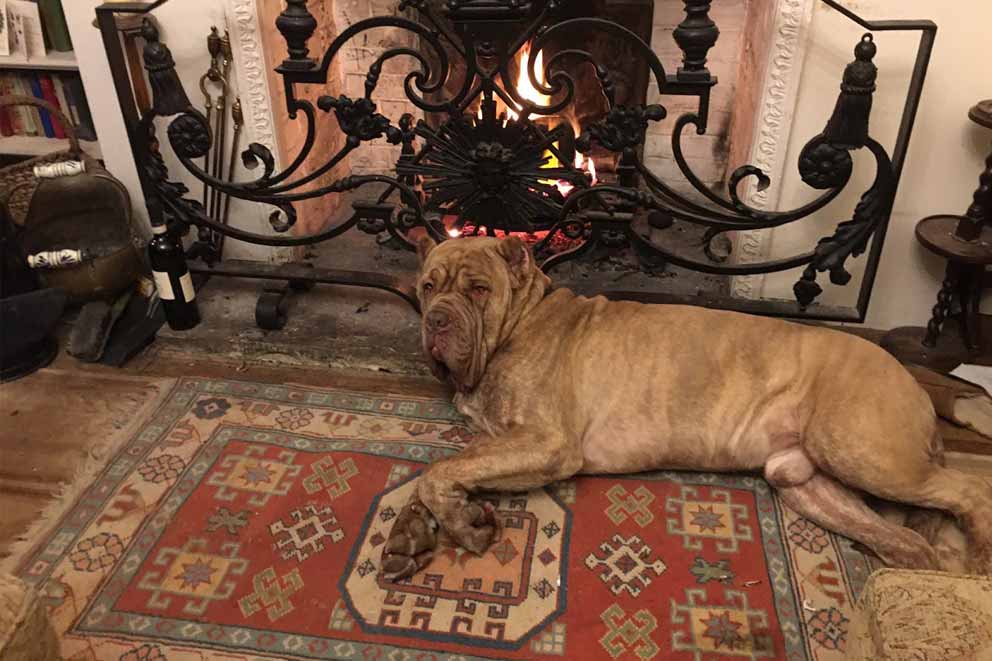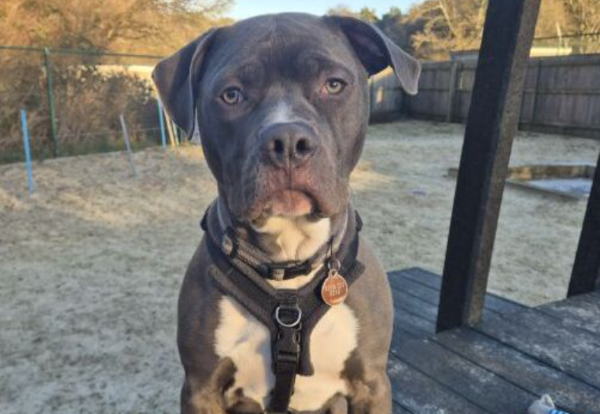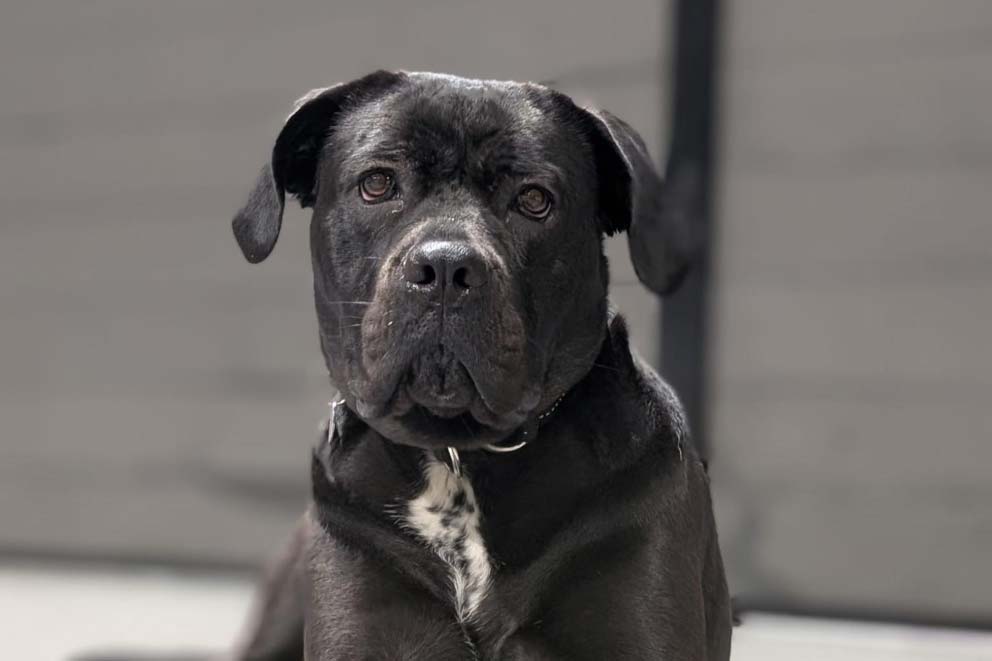Tough new law will help see the end of cruel dog ear cropping and cat declawing
Location:
Date:
A tough new law banning the import of dogs with cropped ears and cats who have had their claws removed will prevent the suffering of hundreds of thousands of pets for generations to come.
New bill ‘leaves no hiding place’ for UK illegal ear croppers
The bill which passed the final stages of Parliament today (Friday) will mean dogs and cats subjected to the cruel and painful procedures will not be allowed in the UK, where these mutilations are already banned.
The import bill will also close loopholes used by criminal puppy smugglers by banning people bringing heavily pregnant dogs and puppies under the age of six months old.
This new law will end suffering for hundreds of thousands of pets, both here in the UK and around the world for generations to come.
“It stops the flow of animals coming into the UK who have been subjected to cruel procedures, and leaves no hiding place for the criminals carrying out these horrific procedures here. Our officers have been battling rising reports of dogs with cropped ears which have risen by 700% over the last decade. This new law will help us eradicate ear cropping for good."
“As we work towards a better world for every kind, today marks a truly historic moment and this is a major step forward for animal welfare in the UK.”
Today the Animal Welfare (Import of Dogs, Cats and Ferrets) Bill officially passed its final stage in Parliament today and is now heading for Royal Assent.
The long-awaited legislation will crack down on illegal puppy and kitten smuggling, prevent the import of mutilated animals such as dogs with cropped ears and declawed cats, and close long-standing loopholes exploited by unscrupulous traders.
Declawing cats and cropping dogs’ ears are both painful and wholly unnecessary procedures that are already illegal in the UK - but remain legal in other parts of the world - and can have lifelong implications for the animals.
RSPCA rescued dog, Neapolitan mastiff cross Eton has been scarred for life by the experience of having his ears cropped. He was one of two puppies from a litter of eight who had their ears cropped before being seized by police and placed in the RSPCA’s care.
His ears were inflamed, painful and infected. The crop is suspected to have occurred around three to seven days earlier, and been carried out using scissors or a sharp blade without pain relief or veterinary care.
The story of Eton
RSPCA Southridge Animal Centre manager Anna White adopted Eton who was left head shy and terrified of sudden movement near his head. He also struggles to communicate and socialise with people and with other dogs, having lost one of his key communication tools.
“This awful procedure has ruined Eton’s life,” Anna said. “We’re now nearly nine years on, and he still struggles - I don’t think he’ll ever fully recover from the mutilation and the trauma he went through.
“He’s such a lovely dog with us, but he’s so scared and wary of people, especially men. Inspectors think the ear cropping was done in the home - he would have been pinned down, handled very roughly before having his ears brutally slashed off, with no anaesthetic. It must have been excruciatingly painful and terrifying for him, and it’s no wonder it’s had such a long-lasting effect.
“When I’m out with Eton, people give him a wide berth - and their reaction can then make him react strangely, so it’s a vicious circle. He does look a bit scary - this is exactly why people do ear cropping, to make their dogs look aggressive - and it’s heartbreaking because he is such a lovely boy deep down. Thankfully, we live out in the country, so we’re able to let him off lead in fields to run around, and we avoid built-up areas with him.
“It’s abuse on a different level - there is simply no reason for such brutal cosmetic mutilation of any animal, but in a society driven by appearance, sadly we see far too many cases. Dogs are not accessories to customise - they are living beings who feel pain and fear, and I’m so glad that this bill closes a loophole to prevent any more dogs suffering as Eton has.”

Ending the import of animals with cruel mutilations
Introduced by Danny Chambers MP (Lib Dem, Winchester), who is also a trained veterinarian, the new law aims to bring forward specific restrictions around the importation and movement of dogs, cats and ferrets into the country - following many years of RSPCA campaigning on the issue, alongside close collaboration with MPs, Government officials and strong cross-sector partnerships.
The legislation addresses widespread abuse of the Pet Travel Scheme, introduced to help owners travel with their pets. Criminal traders have repeatedly exploited the system, disguising commercial imports as personal travel and transporting vulnerable animals in poor conditions. The new law will provide robust protections for animals and significantly strengthen border enforcement to stop this cruelty.
Harriet added: “This law will help end the import of animals with cruel and unnecessary mutilations, stop young and pregnant pets from being brought into the country and make it far more difficult for criminal traders to exploit loopholes for profit - illegal puppy and kitten smuggling is a trade often linked to serious organised crime. Closing these loopholes will protect thousands of animals from suffering and empower our inspectors and enforcement partners to take meaningful action.”
Between 2015 and 2024, the RSPCA has seen a 700% increase in reports of ear cropping with more than 110 reports last year and this year’s figures look set to exceed them.
The RSPCA fears dogs with cropped ears have become more popular over recent years due to popular culture and being featured on social media.
Danny Chambers MP said: “As a trained vet, I've treated many dogs with cruelly cropped ears or docked tails, leaving them physically scarred and emotionally traumatised.
“This new law is not only an animal welfare measure, preventing illegal importation of vulnerable animals, but it is also an important public health measure. By restricting animal imports we will help end illegal pet smuggling and prevent the spread of diseases like rabies.
“This gap in the system has caused the suffering of thousands of innocent animals - this law has been a long time coming and I am thrilled we’ve finally been able to close this loophole, to put an end to this cruel trade once and for all.”

The details of the legislation
Key legislation changes include:
- Raising the minimum age for imported dogs and cats from the current 15 weeks to six months.
- Banning the import of dogs and cats who are more than 42 days pregnant.
- Banning the import of dogs and cats who have been mutilated (cropped ears, docked tails and declawing of cats).
- The legislation tightens the rules on non-commercial pet travel and limits the number of dogs/cats who may be brought in to five animals per vehicle or three per foot passenger and requires that the owner accompany or travel within five days of the animals arrival.
The key benefits of these are:
- Stronger protection for vulnerable animals - The provisions in the legislation of raising the minimum age of imported animals, banning the import of heavily pregnant cats and dogs and banning the import of mutilated animals will enable stronger protections for vulnerable animals, reducing disease and welfare risks.
- Disruption of the trade - Many of the worst welfare cases stem from commercial importers disguising their activities as pet travel - by restricting the number of animals imported and owner involvement, the legislation helps to target smugglers and illegal trading more effectively.
- Improved enforcement - The legislation improves enforcement powers at the border. It also closes the legal loophole that currently exists around mutilations. Although ear cropping is banned under the Animal Welfare Act, it is still possible to import dogs that have their ears cropped, this has made enforcement more difficult. The legislation change will hopefully benefit our frontline teams as importing mutilated animals will be prohibited and will enable us to work closely with enforcement partners.
Lord Trees, Crossbench peer, veterinary surgeon and co-chair of the All-Party Parliamentary Group for Animal Welfare, said: “This is a significant day for animal welfare - being able to put an end to this cruel trade after many years is a huge achievement and a brilliant example of the fantastic work we can do when we come together, across all parties, to help animals.”
More information on the RSPCA's campaigning work can be found on the charity's website.
Contact media and press
If you’re a journalist looking for interviews, quotes or images, get in touch with our media team. Or, if you’re after some quick facts and figures, we have you covered.





